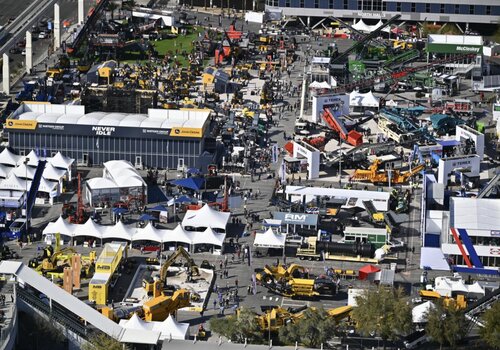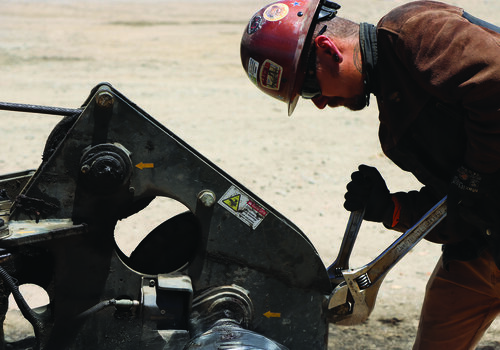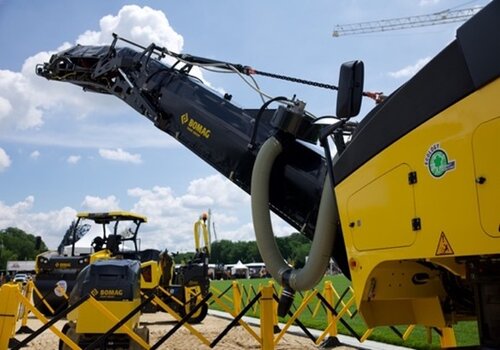Hydraulic systems are integral to the operation of heavy machinery, providing the power needed to perform various tasks efficiently. For contractors, understanding how these systems work and knowing how to maintain them can significantly enhance the performance and longevity of the equipment—and safety of the workers.
HOW HYDRAULIC SYSTEMS WORK
Pascal's principle is the basis for how hydraulics work: pressure applied to a confined fluid is transmitted equally in all directions. This principle is harnessed in heavy machinery to generate force and motion. Here’s are some of the key parts of hydraulic systems:
- Hydraulic Fluid: This is the lifeblood of the system, typically a specialized oil that transmits power. It must be kept clean and at the correct viscosity to ensure optimal performance.
- Pump: The pump moves the hydraulic fluid through the system, creating the necessary pressure. Common types include gear, vane and piston pumps.
- Valves: Hydraulic fluid direction and flow are managed by valves. They can be manually operated or automated, depending on the machinery.
- Actuators: These convert the hydraulic energy into mechanical energy. Actuators can be cylinders that provide linear motion or motors that provide rotational motion.
- Reservoir: This is where the hydraulic fluid is stored. It also dissipates heat and allows air and contaminants to settle out of the fluid.
MAINTENANCE TIPS FOR HYDRAULIC SYSTEMS
Proper maintenance of hydraulic systems is crucial for preventing breakdowns and ensuring efficient operation. Here are some actionable tips contractors can start using immediately:
- Regular Fluid Checks: Ensure the fluid is clean and free from contaminants. Use the correct type of fluid dictated by the manufacturer and check the fluids regularly.
- Filter Replacement: Hydraulic systems have filters to remove contaminants from the fluid. Replace these filters according to the manufacturer’s schedule or sooner if you notice signs of contamination.
- Inspect Hoses and Connections: Look for wear, leaks or damage in hoses and connections. Replace any worn or damaged parts immediately to prevent fluid loss and contamination.
- Monitor System Pressure: Keep an eye on the system’s pressure gauges. Abnormal pressure readings can indicate issues such as blockages or leaks. Address these issues promptly to avoid damage to the system.
- Clean the Reservoir: Periodically clean the reservoir to remove sludge and contaminants that can accumulate over time. This helps maintain the quality of the hydraulic fluid.
- Check for Overheating: Hydraulic systems can overheat if they are overworked or if there is insufficient cooling. Ensure that the cooling mechanisms are functioning correctly and avoid operating the machinery beyond its recommended limits.
- Lubricate Moving Parts: Lubricate all moving parts as per the manufacturer’s guidelines. Reduced friction and wear can help extend the parts’ lifetime and keeping them lubricated helps with just that.
- Perform Regular System Flushes: Flushing the hydraulic system periodically helps remove contaminants and old fluid, ensuring the system operates smoothly.
- Store Equipment Properly: The best maintenance is preventative and proper storage of your equipment when not in use is just as important as how you use it when it is in use.
TROUBLESHOOTING COMMON HYDRAULIC ISSUES
Even with regular maintenance, hydraulic systems can encounter issues. Here are some common problems and their solutions:
- Slow Operation: If the machinery is operating slower than usual, check for low fluid levels, clogged filters or air in the system. Addressing these issues can restore normal operation.
- Noisy System: Excessive noise can be caused by air in the fluid, worn pumps or loose connections. Bleed the air from the system, tighten connections and replace worn components.
- Fluid Leaks: Connections, seals or hoses can have leaks. Inspect the system thoroughly and replace any faulty parts. Using high-quality seals and hoses can prevent future leaks.
- Overheating: Overheating can be due to overworking the system, insufficient cooling or contaminated fluid. Ensure the cooling system is working correctly and replace the fluid if necessary.
Hydraulic systems are vital for the efficient operation of heavy machinery. By understanding how these systems work and implementing regular maintenance, contractors can ensure their equipment remains in top condition, reducing downtime and repair costs. Start with these tips today to keep your hydraulic systems running smoothly and efficiently.
Photo credit: SHUTTERSTOCK.COM/OLEGDOROSHIN












